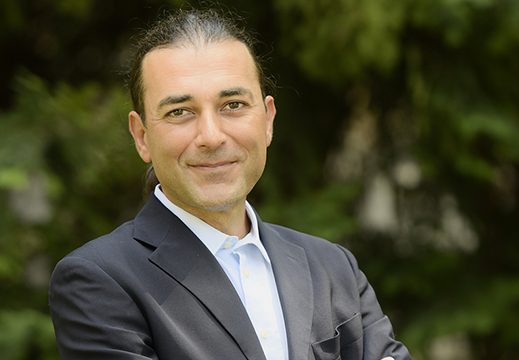
Expert View: A new ecosystem for social change
September 19, 2018
How to branch out beyond national boundaries
September 19, 2018While the non-profit sector is growing in Italy and many charities are embracing digital channels for fundraising, there are growing concerns about the loss of public trust. Fundraising Europe interviews the president and vice president of the Italian fundraising association (ASSIF), Nicola Bedogni and Massimo Coen Cagli, about the Italian marketplace, exploring what charities need to do to navigate the changing environment and rebuild trust.
[Fundraising Europe] What’s changing in the Italian fundraising market and why is this?
[Nicola Bedogni – president of ASSIF] Without a doubt, the charity sector and fundraising specifically is continuing to grow. This is particularly true when it comes to cultural causes and that is likely prompted by two factors: the introduction of the Art Bonus, which offers a tax credit for those who donate to cultural organisations like museums, archaeological sites and theatres, and the fact that art is recognised in Italy as an economic development factor.
At a statutory level, third sector reform is ongoing and this has played a significant part in the growth and development of the sector, with fundraising now recognised by national law for the first time. Bearing in mind that we’re facing some signs of a loss of trust, this sends a crucial message, legitimising the sector’s call for funds and encouraging the public to give their support.
[Massimo Coen Cagli – vice president of ASSIF] In terms of the fundraising

Massimo Coen Cagli, ASSIF
profession itself, there are now many more trained fundraisers in Italy than ever before. We’re also seeing more non-profits investing in human resources and developing long-term fundraising strategies. And here at ASSIF, we have been working to build our infrastructure to provide even more support for them.
What does this mean for how nonprofits typically ask for funds?
[Bedogni] Fundraising in Italy is still characterised by some typical aspects of the Italian social culture. For us, word of mouth is a powerful factor, often leading to a more informal, but deeply personalised approach.
But now, we are seeing a shift toward digital channels, which are becoming increasingly important to Italian nonprofits. At the same time, some mass market channels are becoming less effective than before, especially text giving and face-to-face fundraising – possibly as the result of using what could be perceived of as more aggressive strategies.
You mention a loss of trust, what has happened and how are charities currently perceived?
[Coen Cagli] We are in the middle of a significant shift in the public’s perception of charities, influenced by three key factors. The first of these is a general distrust surrounding how charities use the money they are given. Last year, research (Fondazione del volontariato 2017) showed that more than half – 52% – of people believe funds are rarely used for a charity’s declared activities, while a further 16% think it never is. This has not been helped by a raft of political controversies and other scandals that have affected some NGOs and co-operatives in recent years.
Trust has also been heavily affected by the refugee crisis. The mass influx into Italy, the new government’s position on this, and the proposals from Soros that the EU should compensate Italy over this migration are all contributing to some major misconceptions and a general mistrust of NGOs. Those that don’t agree with refugees coming into the country can see NGOs as the ‘bad boys’ for supporting them. What’s more, the public don’t make the distinction between NGOs and other charities, so this impacts public trust across the whole sector.
Thirdly, what’s also affecting trust levels among the public is the lack of accountability and transparency in some organisations. Quite rightly, donors are increasingly demanding proof of how charities spend their money, and what impact they are having. Many organisations are not yet able to provide this level of accountability, and this lack of openness feeds into the public’s feelings of distrust, further bolstering those negative perceptions.
What does this mean for smaller local charities?
[Bedogni] Smaller charities, as is the case everywhere, still struggle to attract the funding they need not only to fulfil their mission, but to grow and develop. 88% of charities in Italy are small community-based organisations, as has always been the case but the lack of government investment in the extraordinary social landscape that we have here means there is little support available for them.
The bigger charities of course benefit from having greater profiles and more resources, which helps when it comes to attracting funding and support, and in turn gives them larger budgets and a greater capacity to invest.
However, smaller charities also often have an advantage that the larger ones don’t. While they may have a smaller supporter base and a greater fight for funding, they also have more locally based supporters. This can make it easier for these charities to tailor their approach towards them and this closer connection means supporters often feel more invested in a charity and helps to build stronger understanding and loyalty. This all helps to defend these organisations from distrust.
How can charities best navigate the changing marketplace when it comes to fundraising?
[Coen Cagli] People often say that Italy is not a generous country, but in fact we see an enormous opportunity for growth in fundraising. However, to achieve this the sector will need to make some changes. Charities need to invest in training to improve fundraising techniques and professionalism, helping to regain public trust.
There is also a real need for greater focus on individual giving and to invest in building strong supporter relationships. Attrition levels are often high in Italy, fuelled by the growing levels of public distrust, but public support is vital for every charity’s survival, and with little government funding available, individual giving is of increasing importance. Corporate giving is also important and, as with individual giving, what’s needed here is greater investment in developing relationships and strong partnerships.
Last but not least, digital is becoming increasingly important so charities need to focus more on developing their online presence and digital capability if they are to benefit from the many opportunities it can provide. While many non-profit organisations are using digital, there is still a lack of understanding among many, both of digital’s potential and of its associated issues. A big obstacle is also the lack of skills internally to be able to use it to the best advantage.
How is ASSIF helping support the sector during this time of change?
[Bedogni] ASSIF has long worked to support the growth of the fundraising profession, to build standards, and to improve the broader fundraising climate. But we’ve recently developed a detailed strategic plan that divides our approach into 10 key areas. This covers growing membership and offering more training opportunities, conducting research – such as our recent digital survey, which was a first for us – developing resources, and representing the sector more widely, through lobbying and advocacy work.
We’re now widening our reach with a focus on international fundraising, while developing our communications, local groups and events, and sourcing funding for our work through a concentration on sponsorships and fundraising. This will enable us to help charities better tackle all these challenges in a more systematic way.
About Nicola Bedogni and Massimo Coen Cagli
Nicola Bedogni became president of the Italian fundraising association ASSIF in May 2017 and is also senior fundraiser at Fondazione Isabella Seràgnoli. Massimo Coen Cagli took over from Bedogni as ASSIF vice president in May 2017, and is scientific director of the Scuola di Roma Fundraising.it, consultant and senior trainer.




